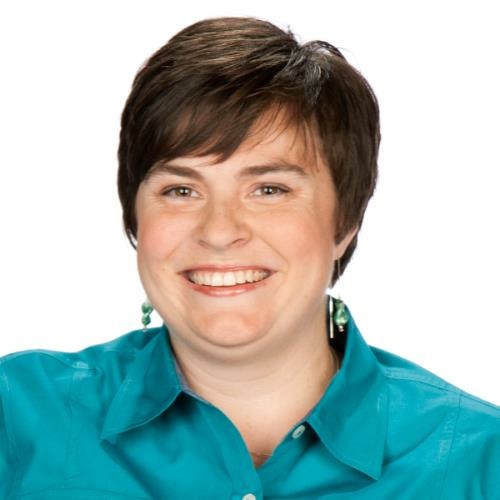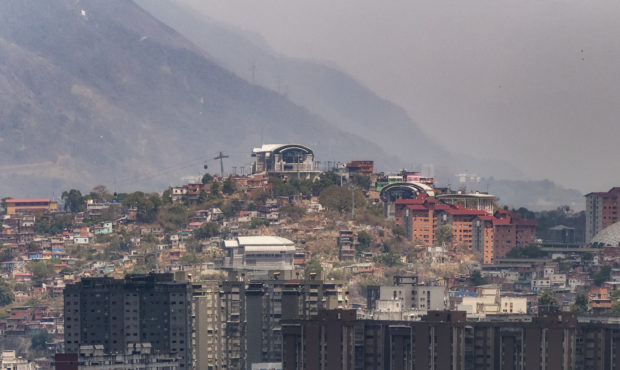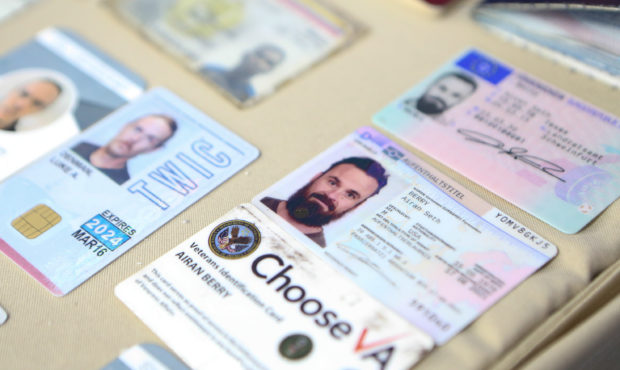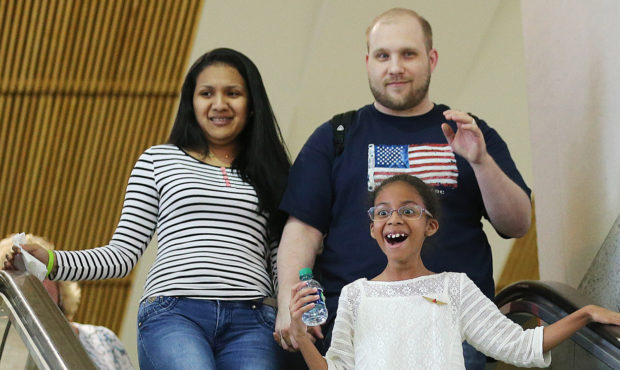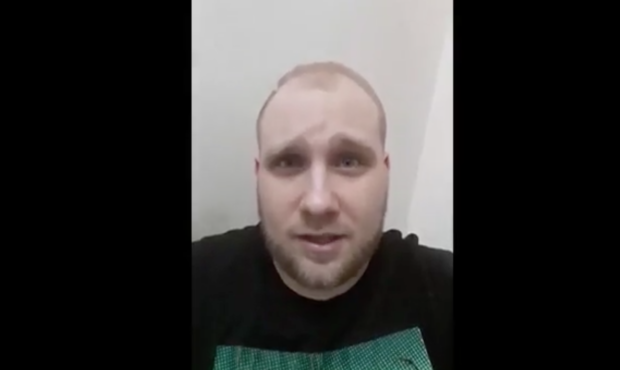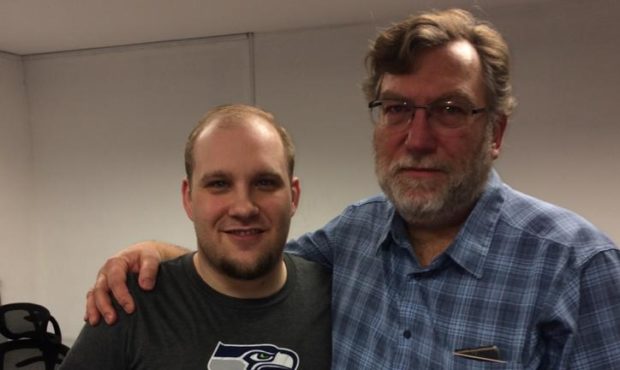Hope In Darkness: Faith, serendipity important part of Josh Holt story
Jul 24, 2020, 7:01 AM | Updated: 8:51 am
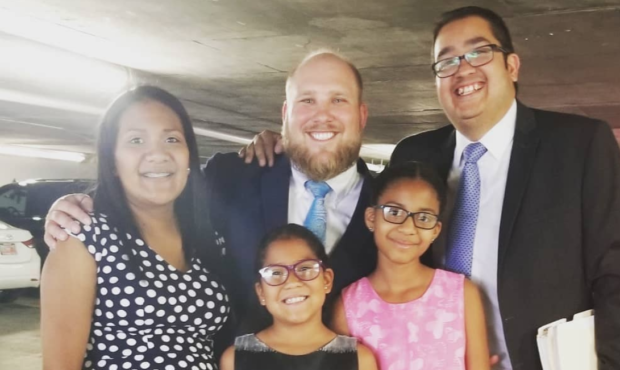
Utah immigration attorney Carlos Trujillo, top right, played an important part in shaping strategy as Josh and Thamy Holt fought against their imprisonment in Venezuela. Here, the family celebrated after securing paperwork to allow their daughters to stay in the United States. Clockwise from left: Thamy Holt, Josh Holt, Carlos Trujillo, Marian and Nathalia. Photo courtesy of the Holt family
Editorial note: this is the latest in a series of articles related to the KSL Podcast, “Hope In Darkness.” Find all of our episodes and coverage here.
SALT LAKE CITY — The way in which a Venezuelan-born Utah immigration attorney became involved in the Josh Holt case involves multiple leaps of faith and a series of seemingly unrelated events that culminated in a phone call.
Carlos Trujillo followed the details in the news as a Utah man’s arrest and imprisonment dominated headlines in Utah in 2016. But he wasn’t involved directly in the case until he received a phone call in April 2017 on the weekend of general conference, a twice-yearly gathering of The Church of Jesus Christ of Latter-day Saints.
Trujillo believes you can trace a divine hand to see how the events of his life led him to that phone call.
A series of serendipitous events
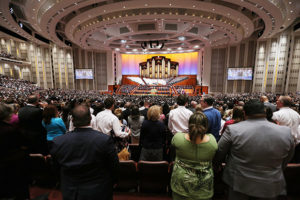
Conferencegoers stand and sing with the choir in the Conference Center in Salt Lake City Saturday during the afternoon session of the LDS Church’s 187th Annual General Conference on Saturday, April 1, 2017. Photo: Scott G. Winterton, Deseret News
In April 2017, just a couple of months before Josh and Thamy Holt celebrated their first wedding anniversary inside Venezuela’s El Helicoide prison, Elder Abraham E. Quero of the Fourth Quorum of the Seventy traveled from Caracas to Salt Lake City to attend general conference. While there, Elder Quero reached out to the young attorney he’d once helped — back when Trujillo was a missionary.
Trujillo first met Elder Quero in Venezuela, when Trujillo was 12 years old and became a member of the church.
“And we have developed a friendship since, and [he] is someone I respect, someone that has looked out for me and someone that I have a kind of blind faith on,” Trujillo said.
When he was a teenager, Trujillo’s parents became increasingly alarmed at growing authoritarianism in their home country and made the tough choice to send their son to Utah to live with an aunt. At first, the future attorney balked at the idea of leaving his family. But a different church official offered him some counsel that he took to heart.
“I’ll never forget his words,” Trujillo said. “He said that I didn’t need to worry about it, that the Lord had a plan for me to help, that the Lord knew when I’ll be helping and how I’ll be helping, and that I just needed to go do what I needed to do.”
Trujillo believed at least some of the purpose made itself clear when he got the phone call from Elder Quero.
“He said, ‘I am helping Josh Holt, and I need you to jump in the case right now,'” Trujillo recalled. He agreed to join the leader in a meeting with Holt’s parents at their Riverton, Utah, home.
Cautious involvement
Elder Quero’s intervention in the Holt case came with a risk. As a church official, anything he did in Venezuela could be seen as the church interfering with the legal process in the country. But he also had an obligation to check in on Josh and Thamy Holt in prison.
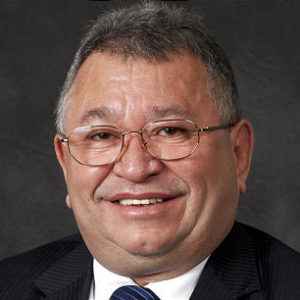
Elder Abraham E. Quero served as Area Seventy over Venezuela until 2019, when he was released. Photo: Intellectual Reserve, Inc. All rights reserved.
“The church definitely had an interest in finding out what was happening with two of their members,” Trujillo said, making it clear he was not speaking on behalf of church leaders. “They wanted to make sure that the safety or the well-being of two of their members was taken care of, and the point of contact for the church headquarters [in Venezuela]… would be Elder Quero.”
Any assistance, official or not, needed to be provided cautiously. As far back as 2005, organized religions, especially those with ties to the United States, encountered strong resistance from the Venezuelan government.
In part, that opposition was retaliation for remarks from televangelist Pat Robertson. He made headlines in the fall of 2005 when he suggested on his show, The 700 Club, that the George W. Bush administration needed to assassinate Hugo Chavez, who was president of Venezuela from 1999 until his death in 2013.
The Church of Jesus Christ of Latter-day Saints evacuated all of its non-native Venezuelan missionaries out of Venezuela amid the rising turmoil.
Over a period of years, the relations between church groups and Venezuelan leaders became more cordial, if not exactly friendly. But after Nicolás Maduro succeeded Chavez, relations deteriorated again, and the church again pulled its non-native missionaries out of the country in 2014 for their safety.
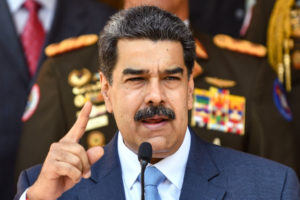
President of Venezuela Nicolas Maduro speaks during a press conference at Miraflores Government Palace on March 12, 2020 in Caracas, Venezuela. (Photo by Carolina Cabral/Getty Images)
The developments were almost certainly on Elder Quero’s mind when he met in Utah with Laurie and Jason Holt, Josh’s parents, and when he visited Thamy and Josh Holt in prison.
“Besides the fact that he would be taking care of them, bringing them stuff, being in contact with his mom and dad and with me, is … messages that I would receive from him that I needed to pass to the parents in regards to what the church was doing,” Trujillo said. “Included in those messages [were] messages straight from the [Quorum of the] Twelve Apostles, that they were praying for Josh.”
Josh Holt remembered Elder Quero’s occasional prison visits as providing a source of comfort.
“One thing he brought was root beer,” Holt said. “He said he knew that people here from the United States loved to have pizza and root beer, and so, first visit I ever had with him, he brought me pizza and root beer.”
“He loves people. He definitely [has] a special place in his heart for Josh and Thamy, and he also had a responsibility as a member of the church presiding over that area to take care of them,” Trujillo said.
How faith and legal aid helped Josh and Thamy Holt
Because his background was undeniably tied to Elder Quero’s, Carlos Trujillo was in a unique position to serve as a bridge between the Holt family in Utah and the legal efforts on the ground in Caracas.
Trujillo came to the United States as a teenager on a student visa. When he felt it was time for him to serve a mission, his nationality made the process more complicated. As a Venezuelan citizen, he needed to go back to Caracas to get a religious visa. It came with some risk because if he left the US, he might not be able to return.
“According to the laws of the United States in immigration… I could possibly be assessed a punishment of not returning to this country for ten years,” he said. “I didn’t care. I was sure of my faith and my testimony that I needed to serve an LDS mission. So I packed up my things and left. Elder Quero and other leaders received me in Venezuela, provide for me in Venezuela.”
Around the same time, Trujillo’s Venezuelan family was able to join his aunt in Utah. Trujillo knew if he couldn’t get the religious visa or if he wound up barred from returning to the US, he might not see his family again.
Then, he got his mission calling: to serve in the Utah Provo mission. A trip to the US landed right in his lap just when he worried he wouldn’t get to come back.
Next, he needed approval for the religious visa to the United States. One important detail: US immigration law required him to have been living outside the United States for the prior 365 days. But he hadn’t been. He had only recently returned to his home country of Venezuela.
“I will never forget as I was getting my religious visa, they asked me for my passport, and this officer started checking all my entries and exits,” Trujillo said. “And when he was going to get to the most recent entry and exit, that page of my passport, two pages got stuck together, and he didn’t see that entry and exit.”
In other words, the official didn’t realize Trujillo didn’t meet the requirements.
“The person finished looking at my passport, [and] said, ‘Good luck to you. I hope you have a wonderful mission.’ I couldn’t believe it,” Trujillo said.
More serendipity
Church leaders didn’t want to separate him from his family, who, again, had recently emigrated to the United States. So while Trujillo served his mission, they applied to change his visa from religious back to student again. He would get to stay in the US.
He went to business school in Utah after his mission, then on to law school in Michigan.
“It wasn’t easy for someone who has English as a second language to go through the LSAT [Law School Admission Test], go to undergrad,” Trujillo said. “I graduated cum laude.”
The young attorney came back to Utah with his wife and family, initially working in private practice before starting his own firm.
“My law firm, my own rules,” he said. “I help who I want to help. I do pro bono work when I want to do it. I don’t have to abide by the rules of other people who might not want to share those ways of practicing law.”
That’s why Elder Quero called Trujillo in April 2017. To Trujillo, the winding path that led him to the US twice, and then to forming his own firm, finally made sense. He was meant to help Josh and Thamy Holt get out of prison.
“Every single one of those things that happened led to Josh, led to that moment,” he said.
Figuring out the system
Trujillo, whose mother was an attorney in Venezuela before coming to the United States, had a good sense for how things worked in both countries.
“Even though I didn’t become an attorney in Venezuela, I was aware of how things worked there, to understand and to be able to put [it] in a way that Jason and Laurie will feel at peace with what’s happening down there,” he said.
After his phone conversation with Elder Quero, Trujillo went with him to the Holts’ Riverton home.
“It was him, it was me, it was another church leader from Venezuela who was there,” he remembered. “We had a good conversation with Josh’s parents that day.”
He quickly became close with the family, doing most of his work pro bono: free.
“The job was really about [being] a bridge between what was happening there and what the parents were suffering here,” he said. “[Explaining] how things worked down there, how the laws worked down there, as far as understanding certain strategies.”
Hope In Darkness releases new episodes weekly on Wednesdays. Subscribe free on Apple Podcasts, Google Play or wherever you listen to podcasts.

